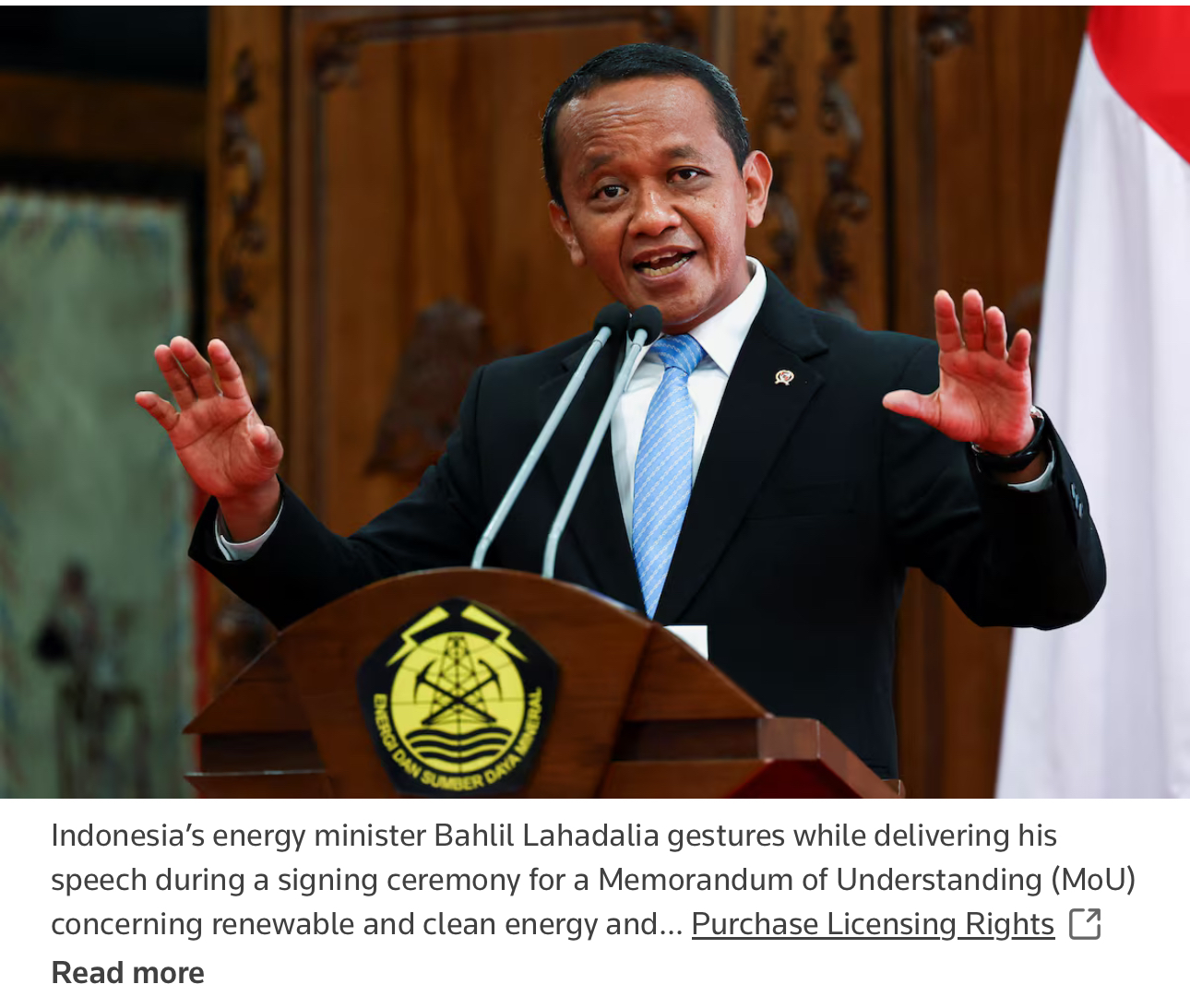출처 : Reuters (2025.4.23.)

China's Zhejiang Huayou Cobalt (603799.SS), opens new tab is replacing South Korea's LG Energy Solution as a strategic investor in one of Indonesia's major EV battery projects, the country's Energy and Mineral Resources Minister Bahlil Lahadalia said on Wednesday.
LGES (373220.KS), opens new tab on Monday announced its withdrawal from the 142 trillion rupiah ($8.42 billion) project.
Indonesia is keen to develop domestic processing industries to produce batteries and EVs to take advantage of its rich mineral resources.
"Change of investors is a common dynamic in large-scale projects," Bahlil said in a statement, adding that there will be no change to the underlying plans for the project.
Huayou would be collaborating with Indonesian state-controlled companies on the project.
Bahlil said Indonesia remains committed to using its mineral resources domestically, and the government will ensure a smooth transition for the project.
A ground breaking ceremony for a part of the project is planned for later this year, he added, without sharing more details.
Huayou's Indonesian unit did not immediately respond to a Reuters request for comment.
($1 = 16,870.0000 rupiah)
Following the withdrawal of the South Korean LG consortium from a multi-billion-dollar battery project in Indonesia, the government in Jakarta has now presented a new strategic partner. According to the Indonesian Energy Ministry, Chinese raw materials group Zhejiang Huayou Cobalt will take over from LG Energy Solution in the so-called Indonesia Grand Package.
Project schedule to remains unchanged
The total volume of the project is still valued at the equivalent of approximately 8.42 billion US dollars. Based on the extensive nickel deposits in Indonesia, the project aims to establish a complete supply chain for electric vehicle batteries. In the future, Huayou will be involved in the implementation together with state-controlled Indonesian companies. Energy Minister Bahlil Lahadalia claims the change of investors is a standard procedure for large-scale projects of this magnitude. The plans for the industrial use of raw materials in the country will be continued without any changes. Start of construction for part of the project is scheduled to take place in 2025.